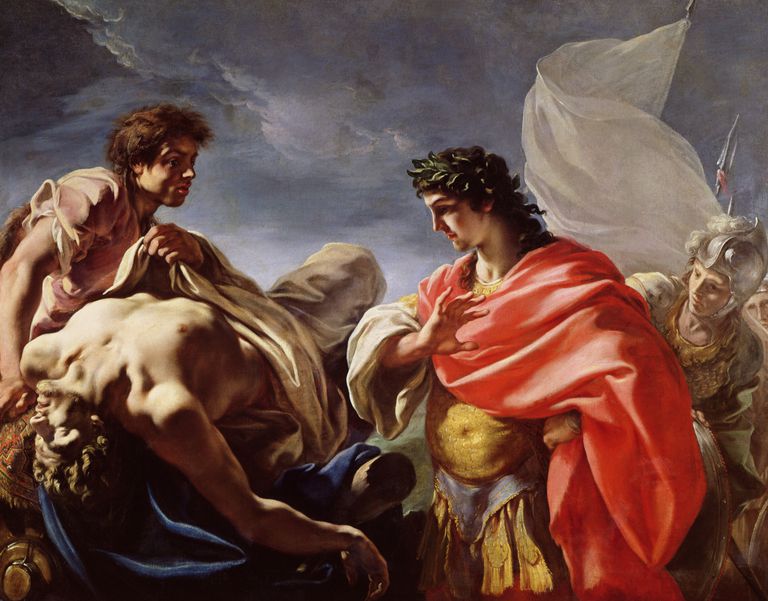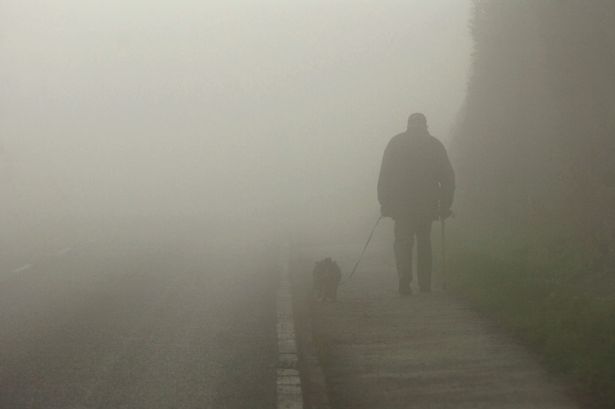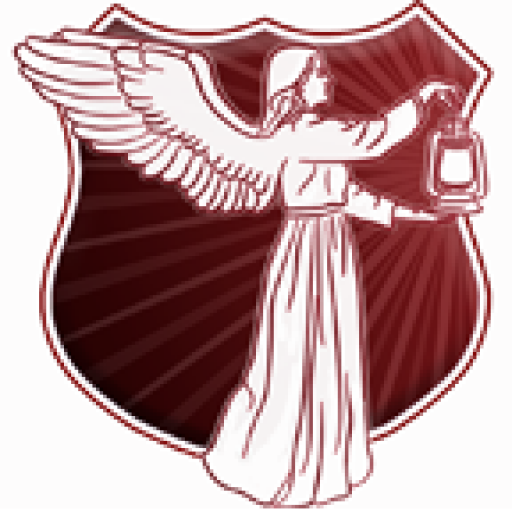Once Upon a Time On the Battlefield of Life

The Buddha was once said to have told to his disciples this story:
“There was once upon a time, a man laying wounded on a battlefield. He had an arrow deeply embedded in his body and was in much pain. Surrounding him were his companions who wanted to help him. They all agreed, the arrow needed to be pulled out, if he was to live.
But this was a painful procedure. The arrow had to be carefully pulled out and quickly bandaged, so the wound could heal.
So the man was stressed and afraid. What if the procedure wasn’t done right? What if these people didn’t know what they were talking about? What if there was another way, a painless way, that no one knew?
The wounded man, wanted to be absolutely certain that he had at hand, all the knowledge he could gather about the arrow and his condition. He wanted to be dead certain, that he had the best information.
So he began to probe those on the battle field: “From what direction did the arrow come from?”, “How did it enter his body?”, “Of what materials was the arrow made of?”, “What was its length, its width, its form?”, “Who was the agent who shot this arrow?”, “Have they found him?”, “What is he like?”
And as he kept asking these questions, piecing together all kind of info about the arrow, his condition deteriorated and he died.
The Buddha went on to explain to his disciples, that his role among them, was to show them, “how to pull out the arrow”.
“The arrow?”, his disciples asked, “What do you mean by that?”
“The arrow,” the Buddha said, “is the way of the world”.
* * *
Through this story the Buddha was to share an insight into our existence, that’s perhaps more relevant to us in the 21st century than ever before. That’s because we are amidst a great “info fog” that has almost entirely obscured the essentials of life.
And like with the man on the battlefield, one of the consequences of this is, that we are prone to ask all types of wrong questions, while our life passes us by…
For there are two great issues at the heart of this story:
The First Noble Truth

The first issue is in the context. We start with a gravely wounded man on the battlefield, with a limited time to pull out ‘the arrow’ and live. This is a metaphor for the actual condition we’re all in. Our day-to-day life is like a battlefield and we have a mortal wound to address, which if it doesn’t get addressed, costs us with what we hold most dearest.
Most of us are unfortunately not even aware of this grave condition. Sure, we all have our shares of problems – whether it’s the burden of financial hardship, or a relationship that’s falling apart, or an illness that we’re battling at the moment… or perhaps we’re just amidst a minor problem, like trying to figure out a software solution we need for work. But overall, life’s pretty good.
Mortal wound? What on Earth could Buddha be talking about?
Many have become so engulfed and engrossed in the process of asking the wrong questions and figuring out all kind of trivial details, that they fail to even recognize our dying predicament… Amidst our 21st century pursuits of information and entertainment, we’ve lost sight of the quagmire that poet Robert Herrick expressed as,
“Gather ye rosebuds while ye may,
Old Time is still a-flying;
And this same flower that smiles today
Tomorrow will be dying.”
This is the condition that the Buddha was to define as ‘The First Noble Truth’ that we all must first come to grips with, if we would truly live… That is, we must come to first realise that our life is suffering. That “life IS Suffering”.
What does it mean?
Well, if we would just step aside from our personal concerns of the moment, if we would step aside from the ordinary questions we busy ourselves with, we would notice that we as human beings, have a major, major issue to face up to in this life…
We as human beings have a number of irreconcilable problems that shall inevitably be a source of much, much misery… That is, we’re already in the process of ‘bleeding’, because we as human beings have a fundamental “limitation” – i.e. we’re limited in knowledge; we’re limited in power; we’re limited in time.
For no matter who one is, a prince or a pauper, in our lifetime we shall only know a tiny, tiny fraction of all the knowledge that is possible; we shall have access to only a tiny, tiny fraction of all the power that is needed to make our world better; and we shall only experience a tiny, tiny fraction of the history of the world.
Our mortality and the mortality of those we love, shall be a source of great suffering. Our lack of power and lack of resources that we need, when we need them, shall be a source of great suffering. Our lack of knowledge to know what to do, when we need to do it, shall be a source of great suffering.
And all these are not just ‘unfortunate’ aspects… They are inevitable. They happen to all people, at all times, in all places. How do we deal with them all? This is the great arrow that’s lodged in our side. How can we realise then happiness, in spite of this? How do we pull out this ‘arrow’?
Where Is Our Focus

The second issue – and perhaps the key issue that Buddha was driving at in this story – is that amidst this painful condition, we also allow ourselves to perish, for a lack of wisdom as to what questions we should ask…
If our time in this life is limited and bounded by suffering, what information do we really need? In life, what is of priority to really know? What are the right questions to ask?
The wounded man, driven by the fear of suffering, asked all the wrong questions. Well-meaning perhaps as he may have been, this did not spare him from the laws of mortal existence. Afraid to face up to what was really at the heart of the matter and his choice to distract himself with ‘secondary information’ – this led directly to his immediate death.
As such, our choice to busy ourselves with secondary questions, with second rate information, comes with the most serious of consequences. For as the Good Book put it, ‘it’s for a lack of knowledge that people perish’.
I realise this may also sound ‘unreal’ to some… Surely you can pursue all forms of ‘pointless knowledge’ in this life, and still live a full life of 80 years or so. We have food. We have shelter. We have health care.
But this isn’t the death that the wisest in history were talking about. It’s the death of our soul that is at stake. And in today’s endless rabbit hole of information, one can walk for an entire life, from one illusion to the next, without ever reaching its bottom. Youtube for instance publishes over 500 hours of video, every minute!
Talking with a friend the other day, she confessed how overwhelmed she has become with all the reading references she has on the internet today, so that the best that she can do, is just to skim read pages and to bookmark them all, for later reading…
The great joke being of course, that in the info web, later never comes. As ‘later’ she’s bombarded with even more information – with one more hyperlink after another, that also only gets superficially read, and which is again “bookmarked for later”.
We’re like a donkey that’s being pulled by the carrot on the string, further and further into the into fog, that promises the next bit of information that may relieve our uncertainty…
In the first film from the Secret Meanings series,“The Right Question”, we looked at this idea.
The next question is then, what questions should we be asking ourselves – particularly in relation to our pursuit of information, or our general self-education?
For we implicitly act as if the information we seek, shall be the means towards our happiness. But beyond the marketing hype and our inclination for self-deception, what is this knowledge all about?
What education do we really need to “pull out the arrow”?
Let us become aware of where we are at right now. Let’s take a bit of time to know ourselves better first…
Carpe Diem,
John
P.S. Can I leave you with a short poignant video that illustrates just what we mean by “secondary information” and how we live our lives in line with the message of Secret Meanings – Volume 1…
It is a music video clip that has one a number of awards already, inclusive of ‘best music video’ of the year:
P.P.S. Upon viewing this, please don’t allow yourself to be distracted with youtube.
Step aside for a moment from the internet – ideally with a pen and paper – and reflect on this question for just 5 minutes: “With what kind of information do I engage with, on a day-to day basis?”
Make a list of what kind of questions do you ordinarily ask:
- What do you usually research through the info-web?
- What kind of questions do you ask your friends and family?
- What kind of questions do you ask yourself daily?
If you don’t know what kind of questions you usually ask or what kind of information you ordinarily pursue, take the next 24 hours, and set the intention to just observe yourself and what you do and say.
